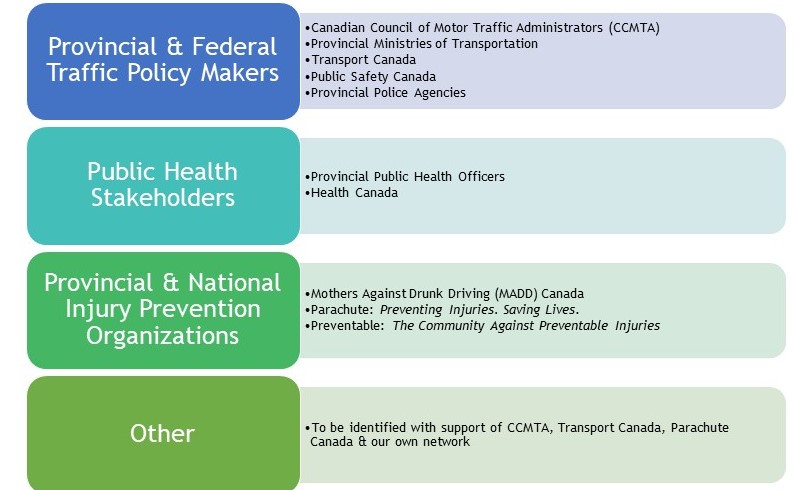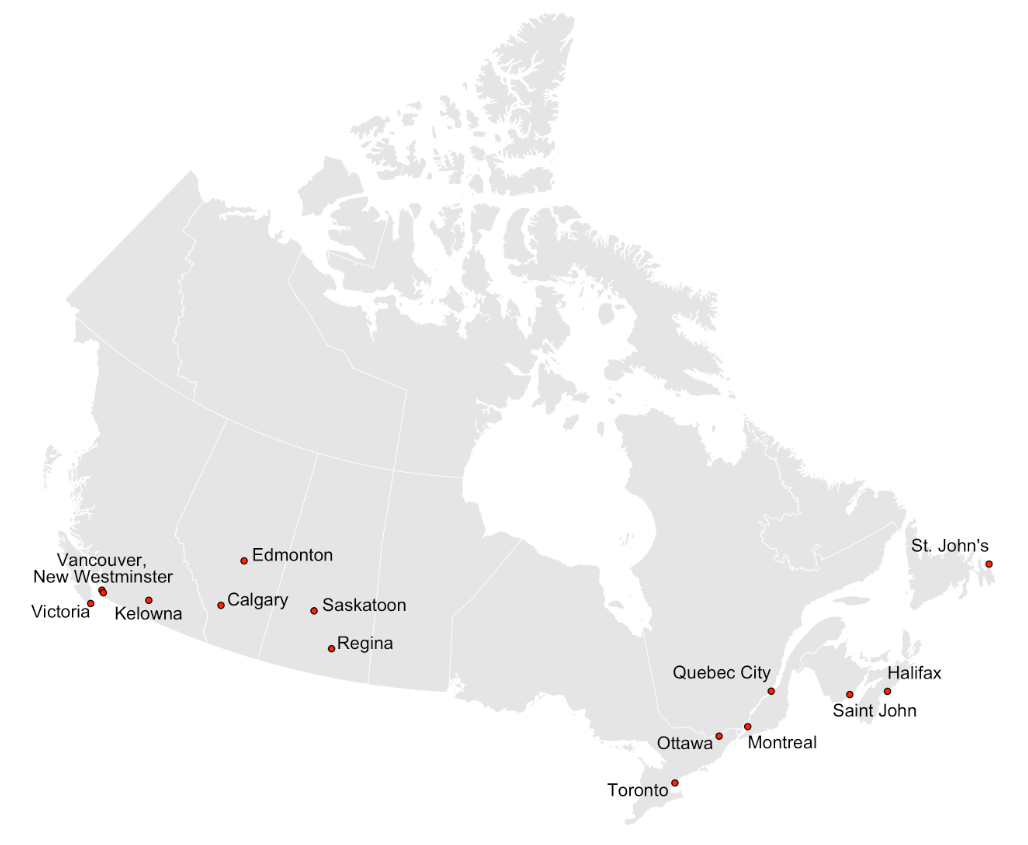Français
| National Report | National Update, April 2024 |
| Alberta Report | AB Update, April 2024 |
| British Columbia Report | BC Update, April 2024 |
| Saskatchewan Report | SK Update, April 2024 |
| Ontario Report | ON Update, April 2024 |
| Quebec Report | QC Update, April 2024 |
| Atlantic Report | Atlantic Update, April 2024 |
Infographic
Impaired driving is a major public health problem. Alcohol-impaired driving is involved in a third of fatal motor vehicle crashes (MVCs) in Canada, and has been well studied. Other drugs such as cannabis, cocaine, and sedating medications also cause impairment and contribute to MVCs. The National Drug Driving Study led by Dr. Brubacher examines the demographic and regional variation in drug use among injured drivers treated in emergency department after a motor vehicle crash. Our overarching goal is to provide relevant data that national and regional policy makers and injury prevention groups will use to inform and evaluate policy and programs designed to prevent people from driving after using drugs.
The following are the objectives of the study:
- Collect reliable data on the epidemiology of drug-impaired driving resulting in motor vehicle crashes in Canada.
- Provide comparative data that can be used to evaluate policy and enforcement.
- Engage provincial and national road safety policy makers as well as injury prevention organizations to identify the information and indicators they require to develop policy/public education programs designed to prevent drug-impaired driving.
- Use the data collected in this project (from objective 1), to provide road safety policy makers and injury prevention groups with the information they require (identified through objective 2 & 3) to develop policy/education programs designed to prevent drug-impaired driving.
This study leverages existing procedures and infrastructure from the Cannabis and Motor Vehicle Crashes (CMVC) study in BC and applies them to 11 additional Canadian trauma centres outside of BC. Read more about our methods of data collection here. This research will provide the first national data set with reliable, objective data on drug use in drivers collected using standardized methods.
Funded By:
Stakeholders:
We are working with a wide range of provincial and national road safety policy makers and injury prevention organizations on this project who are all interested in preventing drug-impaired driving. We are always looking to build connections with new people and organizations!

Publications:
Masud, M., Chan, H., Erdelyi, S., Yuan, Y., Brubacher, J.R. (2020). Epidemiology of drug driving: protocol from a national Canadian study measuring levels of cannabis, alcohol and other substances in injured drivers. BMC Public Health 20, 1070. Download Here
Brubacher, J. R., Chan, H., Erdelyi, S., Macdonald, S., Asbridge, M., Mann, R. E., … & Schreiber, W. E. (2019). Cannabis use as a risk factor for causing motor vehicle crashes: a prospective study. Addiction. Download Here
Brubacher, J. R., Chan, H., Erdelyi, S., Asbridge, M., Mann, R. E., Purssell, R. A., & Solomon, R. (2018). Police documentation of drug use in injured drivers: Implications for monitoring and preventing drug-impaired driving. Accident Analysis & Prevention, 118, 200-206. Download Here
For more information please contact Sarah Simmons, at sarah.simmons@ubc.ca.






